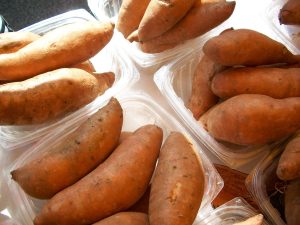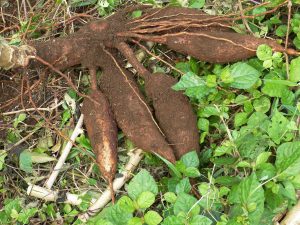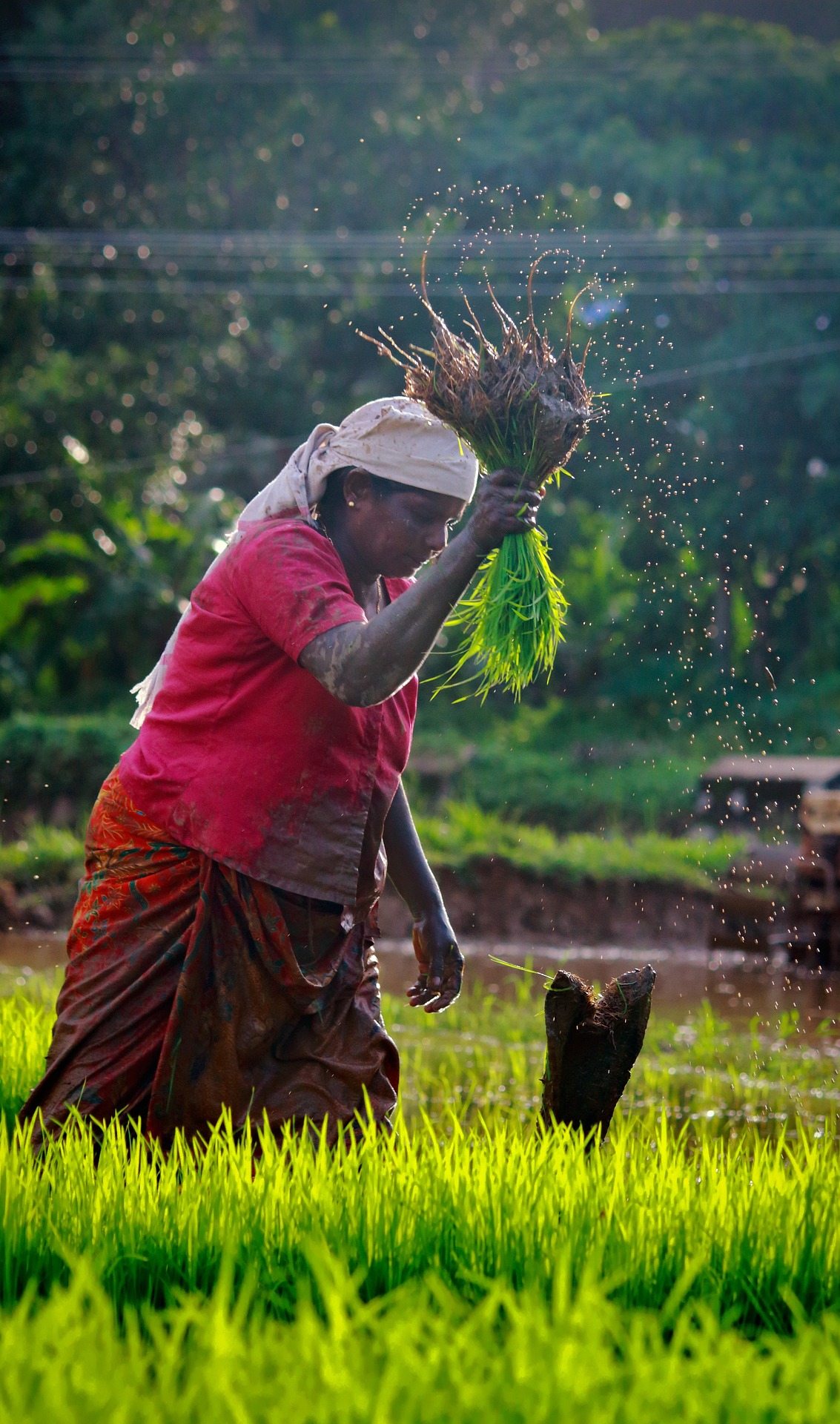
Kerala, known as “God’s Own Country,” is famed for its rich culinary heritage also apart from backwaters, lush greenery, and serene landscapes. The diversity and cultural influences of the region’s history is reflected in the cuisine of Kerala which is a delightful blend of flavors, aromas, and spices. Kerala’s food offers a unique and tantalizing experience for food enthusiasts from its use of coconut and spices to its array of seafood delicacies,
The Essence of Kerala Cuisine
The use of coconut in various forms is one of the defining features of Kerala cuisine. Whether it’s grated, ground, or coconut milk, this ingredient adds a distinct richness and flavor to many dishes. The essence of coconut is omnipresent in Kerala’s culinary repertoire from coconut-based curries like “Ishtu” (a mild and creamy vegetable stew) to “Avial” (a mixed vegetable preparation cooked with coconut and yogurt)
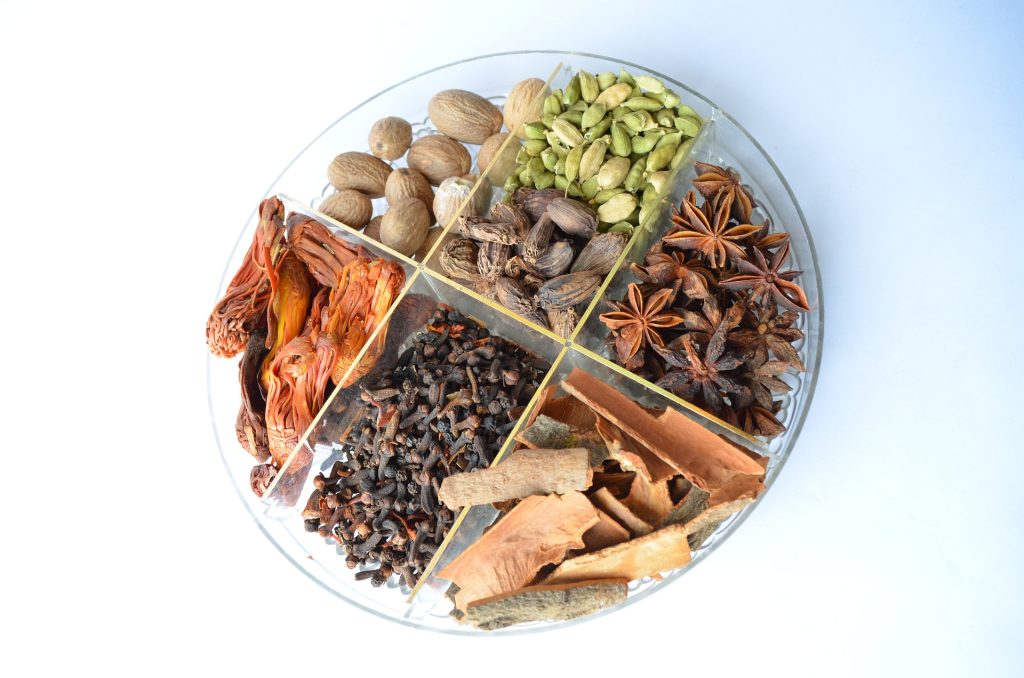
A Symphony of Spices
Kerala’s cuisine is a celebration of spices. The state’s history as a major spice trading hub has influenced its dishes, with flavors that are both robust and nuanced. Spices like black pepper, cardamom, cloves, cinnamon, and fenugreek are used generously, imparting a unique taste to dishes like “Meen Curry” (fish curry), “Kozhi Varuthathu” (spicy chicken fry), and the famous “Ela Sadya” (a traditional vegetarian feast).
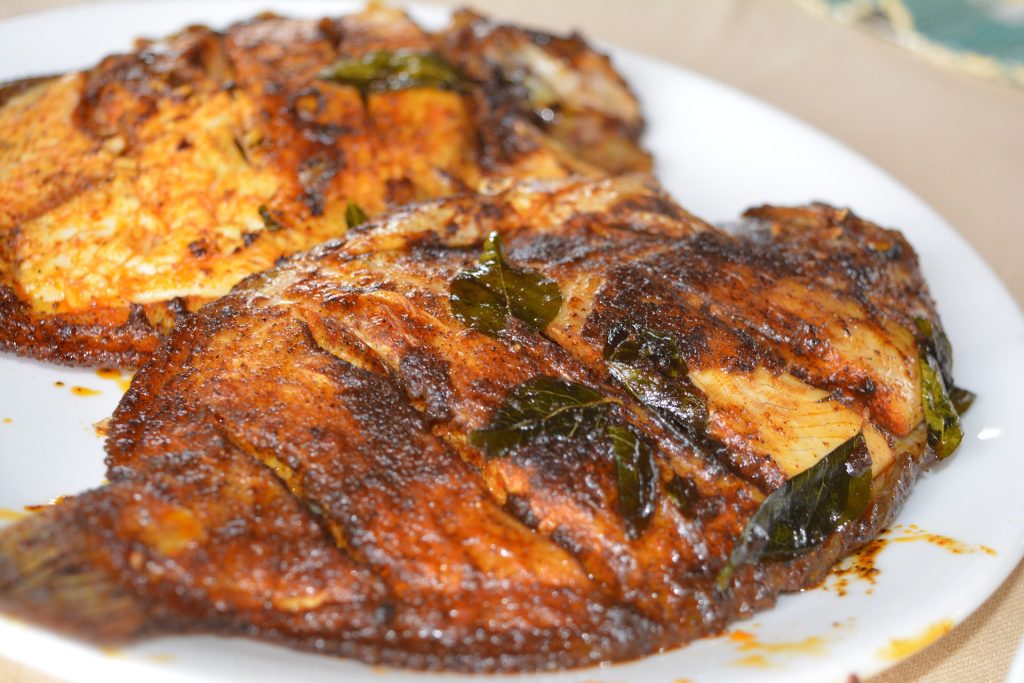
Seafood Extravaganza
Given its extensive coastline, it’s no surprise that Kerala boasts an array of delectable seafood dishes. From spicy and tangy “Fish Moilee” (fish stewed in coconut milk and spices) to the fiery “Kerala Fish Curry” made with tamarind and a blend of aromatic spices, seafood holds a special place in the hearts and plates of Keralites.
Staples of Kerala Cuisine
Appam and Stew: Appam, a lacy pancake with crispy edges and a soft center, pairs perfectly with the mild and flavorful stew made of vegetables, coconut milk, and spices.
Puttu and Kadala Curry: Puttu, cylindrical steamed rice cakes, is often served with Kadala Curry, a spicy and tangy black chickpea curry that tantalizes taste buds.
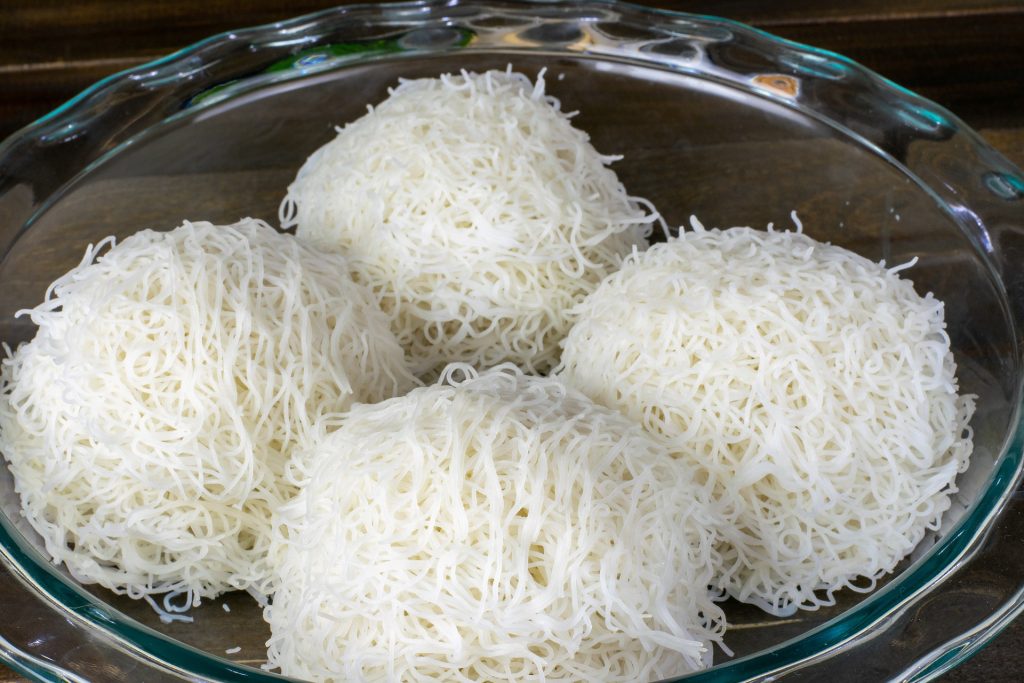
Idiyappam: These delicate, stringy rice noodles are steamed and often served with a range of accompaniments, including coconut milk, egg curry, or spicy gravies.
Payasam: No Kerala feast is complete without the indulgence of Payasam, a sweet dessert made from milk, sugar, and varying ingredients like rice, vermicelli, or fruits.
Influence of Traditions and Culture
The culinary traditions of Kerala are deeply rooted in its culture and festivals. The grand Onam Sadya, a multi-course vegetarian meal served on banana leaves during the festival of Onam, showcases a myriad of dishes, each meticulously prepared and placed in a specific order, symbolizing the richness and unity of the community.
The Ayurvedic Touch
Kerala cuisine isn’t just about flavorsome dishes; it also embraces the principles of Ayurveda. It is believed that the use of spices and ingredients in specific combinations will balance doshas (body energies) and promote well-being. Ingredients like turmeric, ginger, and curry leaves are not only for taste but also for their medicinal properties.
Modern Interpretations
While traditional recipes hold a special place, Kerala cuisine continues to evolve. Chefs and home cooks experiment with fusion dishes, incorporating global influences while retaining the essence of Kerala’s flavors. Restaurants and eateries offer innovative twists to classic dishes, appealing to a wider audience while preserving the authenticity of the cuisine.
Conclusion
The cuisine of Kerala is a delightful journey through a tapestry of flavors, spices, and cultural influences. Its rich diversity, emphasis on fresh ingredients, and a perfect balance of spices make it a paradise for food lovers. Whether you’re savoring a spicy fish curry by the backwaters or indulging in a traditional Onam feast, Kerala’s food is a sensory delight that leaves a lasting impression, inviting you to explore its culinary wonders time and again.





